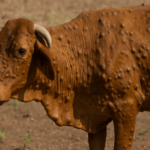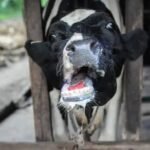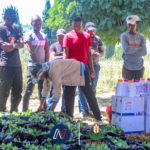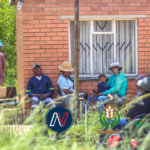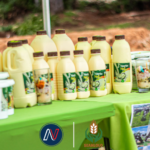Mohale’s Hoek is a district often associated with subsistence farming and unpredictable weather patterns, but a quiet agricultural revolution is underway.
Vegetable farmers in Mohale’s Hoek, under the guidance of the Lesotho National Farmers Union (LENAFU), are transforming their operations using Best Management Practices (BMPs), and the results are inspiring.
A case study conducted by LENAFU profiles farmers who have implemented sustainable, environment-friendly, and productive methods in vegetable farming.
From soil conservation to water-efficient irrigation and organic composting, these farmers are proving that with the right techniques and support, agriculture cannot only feed families but also build thriving livelihoods.
One such farmer is Mamorena Seqao, who champions the Machobane farming system. Her method emphasises composting, crop rotation, and water conservation.
“We are not just planting, we are preserving the soil for future generations,” she said.
Her drip irrigation system, fed from a nearby stream, has become a model for water-smart farming in the area.
Lefu Poone, another farmer, has scaled his cabbage production to nearly 4,000 heads per cycle, using Green Coronet and Cape Spitz varieties.
He complements this with beetroot, tomatoes, and leafy greens. His fields, situated on well-drained slopes, thrive due to good soil structure and regular composting with kraal manure.
For Sempe Lebona, another farmer, the journey began with many setbacks — low yields, poor soils, and irrigation struggles. But, after consulting with the Ministry of Agriculture’s extension services, he diversified his crops and now grows tomatoes, carrots, onions, and peppers.
His success underscores the vital role of technical support in transforming struggling farms into productive ventures.
The LENAFU study highlights several practices that have led to improved outcomes:
- Use of tunnels and greenhouses to protect against hail and extend growing seasons.
- High-yielding seeds like Trinity tomatoes and California Wonder peppers.
- Soil conservation methods such as mulching with eragrostis, crop rotation, and minimal tillage.
- Integrated pest management, blending local herbal solutions with safe chemical controls.
Even Thoriso Monenane, a different farmer, who once left Lesotho in search of work in South Africa, returned to farming with renewed purpose.
He started with a homestead garden and now operates a profitable farm with shade nets, irrigation hoses, and greenhouse structures acquired through government support and communal funding.
All the profiled farmers reported profits and pitfalls with the financial benefits more tangible enough to make a case.
Farmers report:
- Selling Cape Spitz cabbage at M10 per two heads;
- Tomato boxes going for M50–M60;
- Green pepper buckets for M70;
- Butternut bags ranging from M35–M45.
Profits from vegetable farming have allowed farmers to buy livestock, build homes, and pay school fees, the study recorded with one farmer confirming that, “Vegetables bought me pigs, cows, and dignity.”
However, challenges remain visible with post-harvest proving an eminent challenge that sets back progress.
The study identified the lack of cold storage, poor access to markets, and expensive transportation as huge existing limitations to earnings.
While the system shows faults, the study continued to identify weak record keeping as a challenged facing individual farmers. The study further noted low participation of youth in farming.
LENAFU recommends that the Ministry of Agriculture and private sector partners establish a formal vegetable market centre in Mohale’s Hoek, improve access to inputs, storage, and training services, and introduce financing schemes tailored to smallholder vegetable farmers while also encouraging youth and women to join the vegetable value chain.
LENAFU noted that the success of Mohale’s Hoek vegetable growers offers a model worth replicating across the country.
“With the right support, agriculture in Lesotho can become a powerful driver of food security, income, and rural development.”

